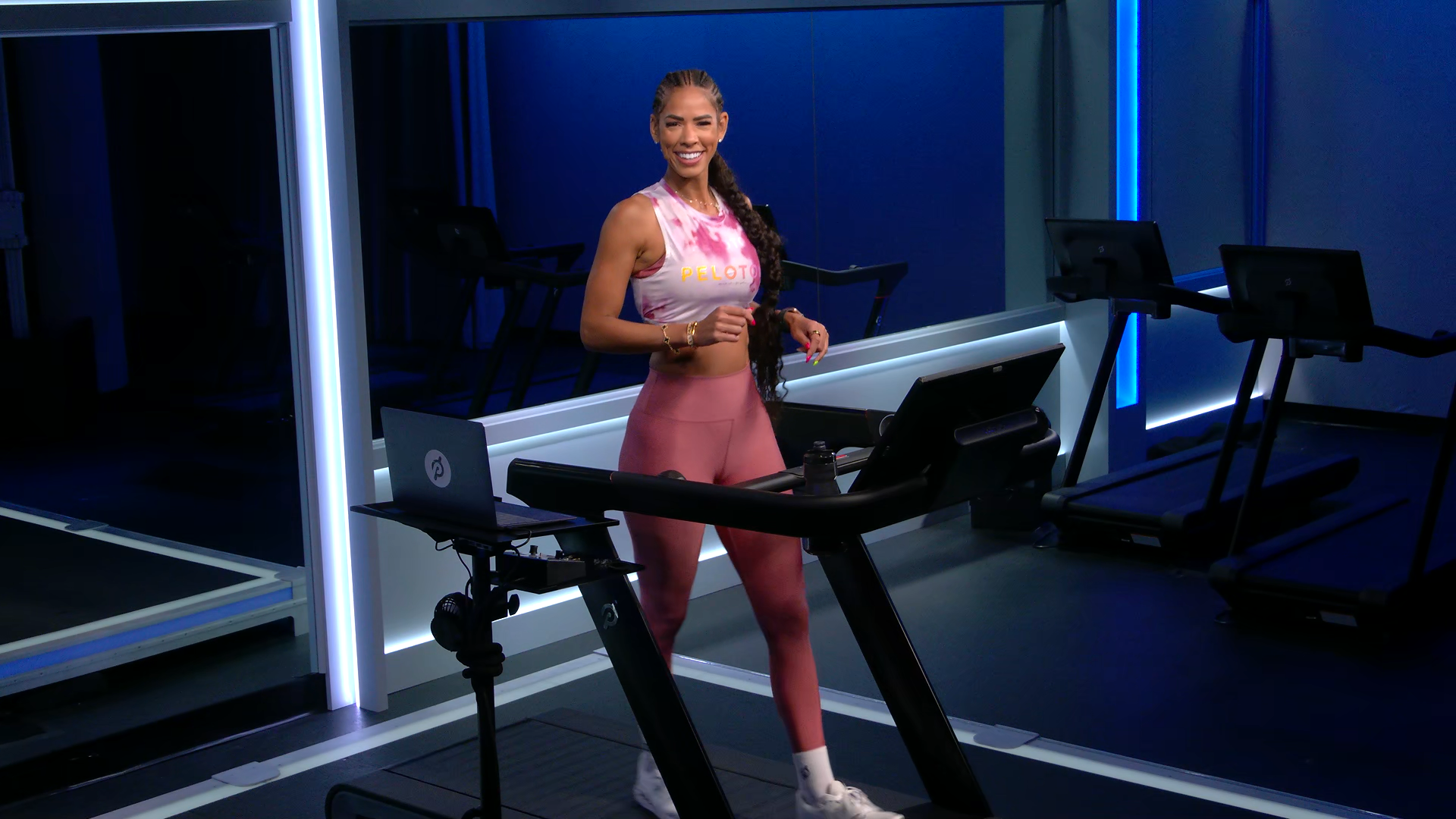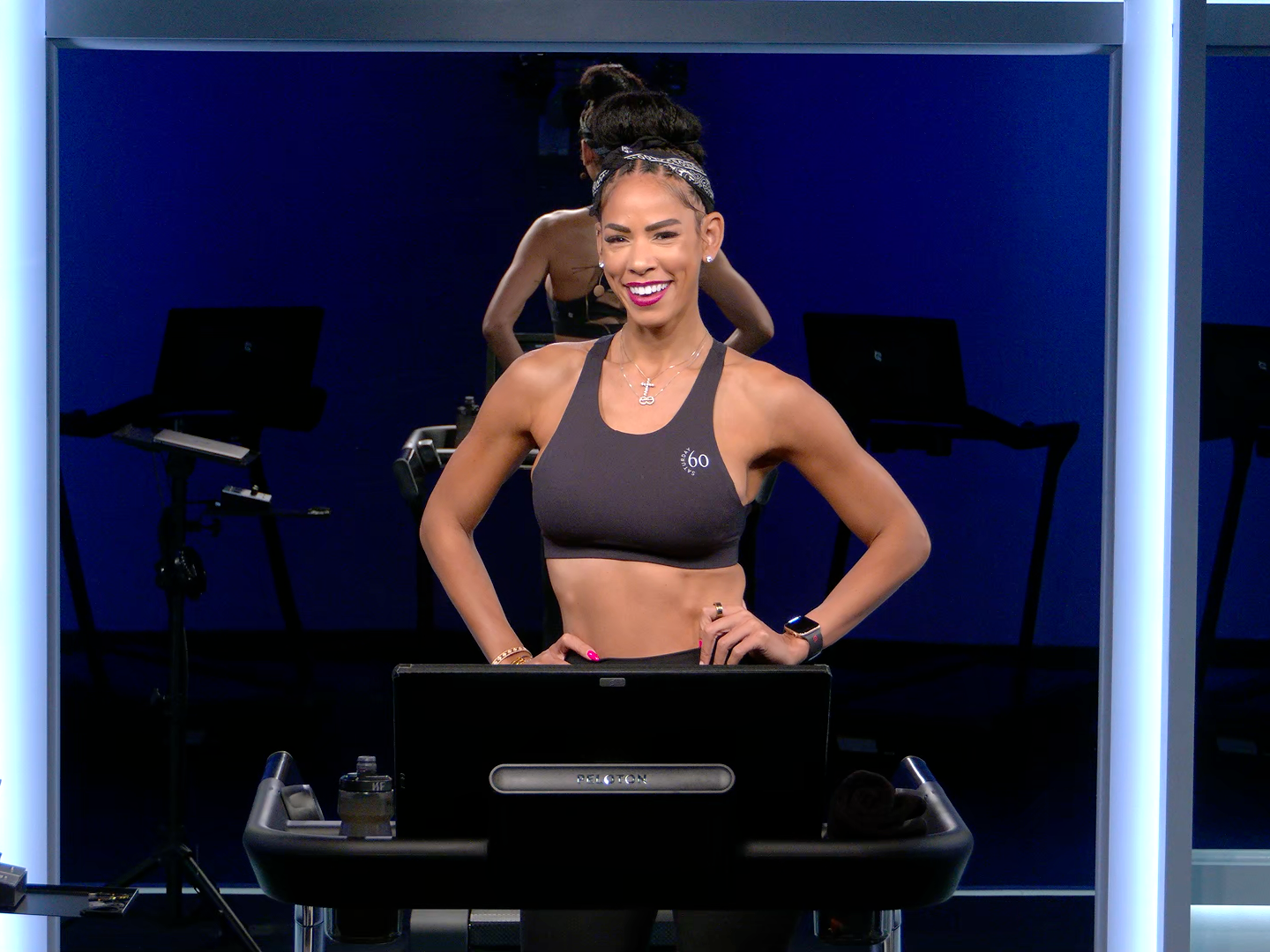
Walking Workouts Are Low-Key Amazing. Here's What to Know.
Why slowing down could accelerate your fitness journey.
By Maddy Sims•
Is Walking a Good Workout?
The Benefits of Walking Workouts
Is a 30-Minute Walk Enough Exercise?
How To Supercharge a Walking Workout
How To Fit Walking Workouts in Your Workout Routine
The Takeaway
As a former competitive swimmer, I used to think every workout needed to be extremely challenging, otherwise I wasn’t making progress. Low-intensity exercise seemed like a waste of time (yikes), and the idea of walking being a workout seemed impossible. Despite my, ahem, extreme past views, I know I’m not alone in that last thought: Is walking actually a good workout? Turns out, there may be more to your daily stroll than you think. Read on to learn more about the health benefits of walking and how to incorporate the low-impact cardio into your fitness routine.
Is Walking a Good Workout?
Walking is an excellent workout that offers several benefits. “Physically, walking can help with your cardiovascular fitness and help lower blood pressure, but walking is also a perfect way to bring your stress levels down,” says Peloton instructor Kirsten Ferguson. “Walking done with the right amount of effort will give you an endorphin boost while having a low impact on the body.” Kirsten is right: A 2023 study in the British Journal of Sports Medicine found that even one 11-minute brisk walk a day can lower the risk of heart disease, stroke, and a number of cancers. Here’s the better news: Walking more only provides more health benefits.

The Benefits of Walking Workouts
Multiple studies show that a brisk walk is a highly effective form of exercise—and that it offers countless benefits (so you can put any skepticism to bed). Below are some of the many benefits taking a stroll offers, from increased physical health to improved mental health.
1. Reduced Risk of Cardiovascular Disease and Cancer
The same British Journal of Sports Medicine research found that just 75 minutes of moderate activity (read: walking!) per week reduces the risk of cardiovascular disease by 17 percent and cancer by seven percent. The researchers also hypothesized that with that activity level, one in 10 early deaths could be prevented (and if everyone did at least 150 minutes per week, one in six early deaths could be prevented).
2. Lowered Blood Pressure and Blood Sugar
Walking also improves other aspects of health, such as blood pressure and blood sugar. A 2023 study in Medicine & Science in Sports & Exercise found that five minutes of walking every 30 minutes significantly lowered both blood pressure and blood sugar. More notably, these walking spurts lowered blood sugar spikes after a large meal by 50 percent compared to sitting all day. (Consider this your official sign to leave your desk and go on a short walk after your lunch!)
3. Improved Mental Health
Another benefit of walking? Improved mental health. Researchers have found that short walks throughout the day led to significant decreases in fatigue and significant improvements in mood. Kirsten agrees, adding that walking can help reduce stress levels, improve sleep, and help clear your mind.
4. Encourages Socializing
“Walking is an amazing workout for someone that is just getting into fitness or coming back after taking some time off,” Kirsten explains. Given that it’s so accessible, you can do it with other people and make it a time for social connection, too.
Studies show that connection is vital for our physical health—in fact, lacking social connection qualifies as a risk factor for premature mortality. By walking with a friend or a group, you can double up on health benefits. Kirsten loves to use her walks as a time to connect with family. “As a mom to two young girls, I like to take them out for a walk and hear about their day,” she says. “It’s a great way for us to move as a family and have meaningful time together.”
Is a 30-Minute Walk Enough Exercise?
“Walking is beneficial for any duration,” Kirsten says. “It all comes down to what are you trying to achieve: If you want to go out for a casual walk to clear your mind, amazing. If you are looking to burn some serious calories but only have 30 minutes, Peloton Hikes will be your best friend.” (Hike workouts on the Peloton Tread or incline treadmill walking can help get your heart rate up quickly for a sweaty, low-impact workout.)
Studies have shown that walking 30 minutes five days a week provides several long-term health benefits, including reduced risk of heart disease. It also burns extra calories throughout the week without leading to muscle loss (which can help your metabolism and support your fitness goals).

How To Supercharge a Walking Workout
Regular walking is a great workout on its own, but you can make it more intense with these seven tips.
1. Do a Guided Walk
I personally know that walking by yourself can get old. But doing a guided walk on the Peloton App is an easy way to fix that. “Our Peloton guided walks really make walking fun: We curate amazing playlists with fun intervals that you may not do if you are just out for a walk on your own,” Kirsten says. “We also provide that little motivation you need to get through the walk. You may be on your own but you are never alone!” It’s true—I take these walks almost every day and they give me the extra boost I need to stick to my fitness routine.
2. Try Incline Treadmill Walks
Want to take your walks to the next level? Try Peloton’s incline hiking walks. You’ll engage more muscles and break a sweat much faster than a typical flat walk (trust me on this). Kirsten says incline walks are her favorite classes to teach and to take (she’s coming back from an injury and swears by them). “Hikes are such a great workout but have low impact on the body,” she says. “Holding a good pace while challenging yourself with higher incline will give you the most bang for your buck.”
Given walking on an incline is more challenging, it’s important to maintain proper form. “You want to lean with a slight hinge in your waist," Kirsten says. “This will activate your core to move with you.”
If you’re hiking on your Peloton Tread, make sure you aren’t too close to the cross bar. Kirsten suggests moving slightly back so you can really feel the inline. And, tempting as it might be, try not to hold the cross bar. “If you feel like you need to, hold the incline but take down your speed a bit,” she suggests.
Even on walks with no incline, it’s crucial to stay on top of your form. “Proper form makes sure you don't put unwanted stress on your muscles, joints, and ligaments throughout your body,” says Olivia Amato, a Peloton Cycling and Tread Instructor. “For example, if you’re slouching when walking, you can strain your neck and/or your back. Walking with proper form also conserves your energy, increases your core strength and helps to improve balance.”
3. Vary Your Speed
If you want an extra challenge on your daily walk, try switching up your speed. Not only will it lead to a more intentional walk, the varying speeds will elevate your heart rate.
“You can pick up your pace into a power walk and even experiment with power walking intervals,” Olivia says. This will make the exercise more intense, improving your overall fitness and making your daily stroll a little bit more challenging.
4. Time Yourself
Measuring your progress is one of the best ways to push yourself in workouts. Timing your walks will give you a starting point and encourage you to walk a little bit faster. Try and complete your usual walk route faster every time (or try and go further in a set amount of time). The faster speed will increase your heart rate and increase your calorie burn. The Peloton App tracks your distance while you walk, so taking a timed walk (like a 30-minute walk) can encourage you to make your walks more challenging.
5. Add In Other Exercises
Up the ante of your workouts by adding in strength exercises. The bootcamp classes on the Peloton App are a great way to try this out. Kirsten says some of her favorite classes on the Peloton App are the hiking bootcamps. “The hiking intervals will give you all the cardio you need matched with the strength work on the floor,” she says. “It is a full-body workout that will leave you breathless.”
For an added challenge, Olivia likes to carry one to three pound weights during her walks. “Just make sure you are continuing to bend your elbows and swing your arms north to south, not east to west,” she says.
6. Get Outside
Want to supercharge your overall well being? Take your walk outside if you normally only walk on the treadmill. Numerous studies have shown that time in nature improves health: it improves physical health, mental health, and levels of cognition. That goes for all times of the year—even winter. One study found that walking in snow-covered woodlands can improve how you feel about your body. That’s right: Suiting up and stepping out into the cold can actually lead to greater body appreciation. (Just make sure you dress appropriately for the colder temperatures so your body loves you back!)
7. Crank Up the Music
Music does more than just pass the time on your walks. One meta-analysis shows that listening to music during a walk or another exercise session decreases perceived exertion and increases physical performance. Just another reason to put your headphones in and try a guided walk in the Peloton App.

How To Fit Walking Workouts in Your Workout Routine
Ready to make walking a part of your schedule? “Walking should be an addition to what you are already doing,” Kirsten says. She likes to walk after her strength training (though you’ll still get benefits if you walk before strength training). Walking before your strength training will ultimately increase your endurance, while walking after your strength training will help increase overall strength. Either way, you’re still improving—so walk whenever you want to!
Walking is also perfect for active recovery days (Kirsten says she does this herself). “It doesn’t need to be an intense hike, but a good music-focused walk or a power walk is perfect.” Moving your body and slightly elevating your heart rate will release muscle tension and help your whole body reset.
The Takeaway
Turns out, walking is an incredible workout. Not only does it improve your physical health, it also benefits your mental wellbeing. The best part? It doesn’t require much time: Just 30 minutes a day will provide you with amazing benefits. So, turn on any kind of walking class on the Peloton App and get to stepping.

Peloton App
Access thousands of classes with no equipment needed.
This content is for informational and educational purposes only and does not constitute individualized advice. It is not intended to replace professional medical evaluation, diagnosis, or treatment. Seek the advice of your physician for questions you may have regarding your health or a medical condition. If you are having a medical emergency, call your physician or 911 immediately.


